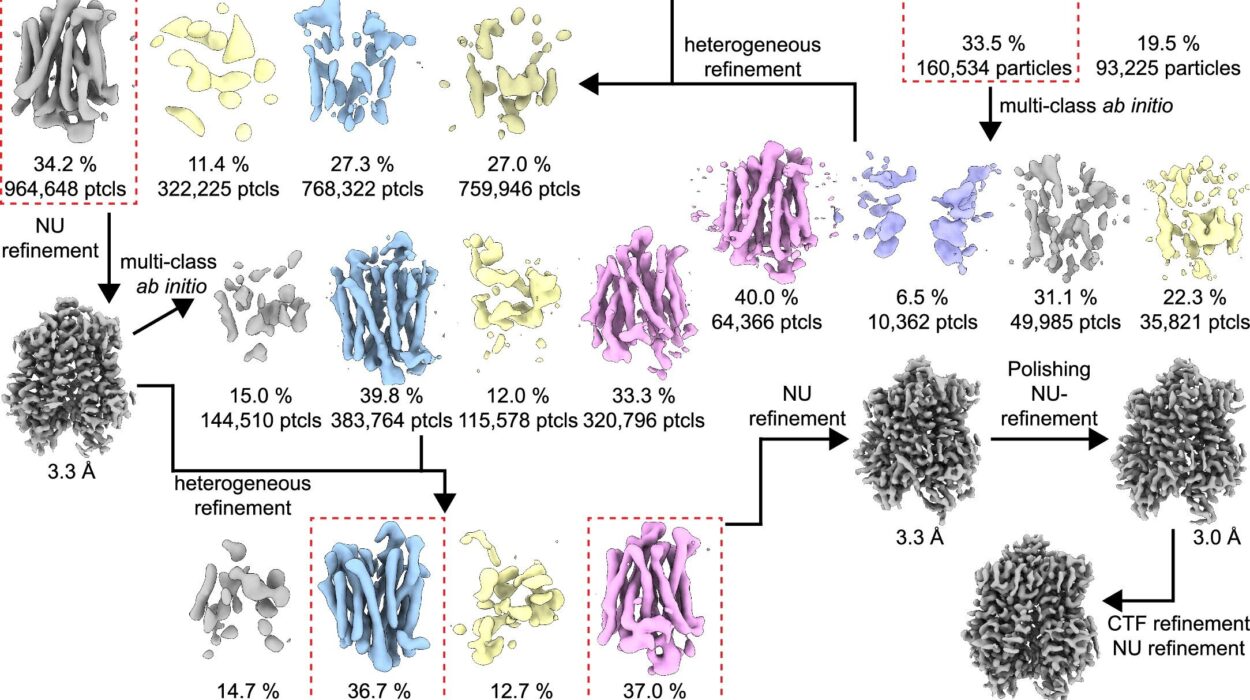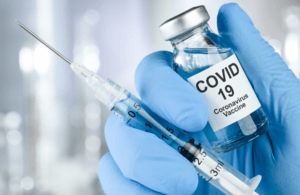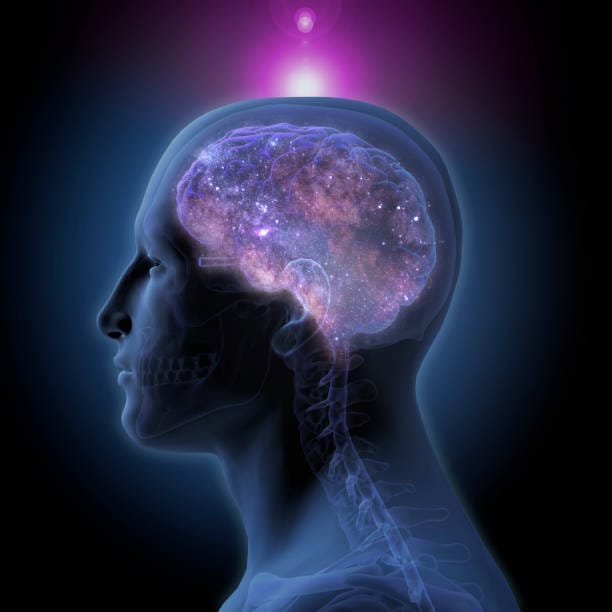Depression is not just a passing sadness—it is one of humanity’s most pervasive and painful conditions, affecting over 280 million people worldwide. For many, antidepressants and psychotherapy offer only partial relief. Countless patients find themselves caught between hope and despair, searching for treatments that truly work. But what if the key to emotional healing lies not in the brain alone, but in the gut?
In a remarkable convergence of modern neuroscience and microbiology, researchers have begun exploring a bold and unconventional idea: that the microbes living inside our intestines—collectively called the gut microbiota—may influence our moods, thoughts, and emotions. And now, according to a recent meta-analysis published in Frontiers in Psychiatry by scientists at the Department of Nursing, Jiangsu Province Hospital of Chinese Medicine, Affiliated Hospital of Nanjing University of Chinese Medicine, there is growing evidence that fecal microbiota transplantation, or FMT, could play a role in easing depression.
The Hidden Conversation Between Gut and Brain
For decades, doctors viewed mental health as a product of brain chemistry—imbalances in neurotransmitters like serotonin and dopamine. But in recent years, research has revealed a powerful, bidirectional communication system known as the microbiota–gut–brain axis.
Through this axis, trillions of bacteria, viruses, and fungi living in the gut send chemical signals to the brain via the vagus nerve, immune system, and metabolic pathways. These microbes produce a variety of substances—such as short-chain fatty acids, neurotransmitters, and hormones—that can directly affect mood regulation, stress response, and even cognition.
When this delicate ecosystem becomes disturbed—a condition called dysbiosis—it can contribute not only to digestive disorders like irritable bowel syndrome (IBS), but also to anxiety, fatigue, and depression.
This discovery has transformed the way scientists think about mental illness, blurring the boundaries between neurology and gastroenterology. It suggests that restoring microbial balance might not only improve gut health, but also bring emotional equilibrium.
The Promise of Fecal Microbiota Transplantation
Fecal microbiota transplantation (FMT) might sound unappealing at first—it involves transferring processed stool from a healthy donor into the intestines of a recipient to repopulate their gut with beneficial microbes. Yet this therapy, once considered fringe, has already revolutionized one area of medicine.
FMT has proven remarkably effective in treating recurrent Clostridioides difficile infections, often succeeding where antibiotics fail. This success sparked curiosity: if FMT can restore balance to a damaged gut, could it also rebalance the chemistry that influences mood?
The Jiangsu-led meta-analysis set out to answer exactly that. By pooling data from 12 randomized controlled trials conducted between 2019 and 2024 in China, Australia, Canada, Finland, and the United States, researchers evaluated whether FMT could meaningfully reduce depressive symptoms compared with placebo or standard treatments.
In total, the analysis included 347 participants who received FMT and 334 controls. Procedures varied—some studies delivered the transplant via capsules swallowed by mouth, others through colonoscopy, enema, or endoscopic routes. Follow-up periods ranged from two weeks to an entire year.
What the Evidence Shows
The results were striking. Across all studies, patients who received fecal microbiota transplantation experienced a significant reduction in depressive symptoms compared with those in control groups.
Interestingly, the route of delivery appeared to matter. While both oral capsules and direct gastrointestinal delivery achieved statistically significant benefits, the effect was stronger for endoscopic or enema-based approaches. These more direct methods seemed to provide a deeper or faster microbial restoration, possibly explaining their superior outcomes.
The improvements were observed in both short-term (within a few weeks) and intermediate-term (within several months) follow-ups. However, effects tended to diminish by the six-month mark, suggesting that while FMT may offer temporary relief, its durability remains uncertain. More research is needed to determine whether repeated treatments or maintenance doses could prolong the benefits.
The Special Case of IBS and Depression
One of the most intriguing findings emerged from participants who suffered from irritable bowel syndrome (IBS). In this subgroup, FMT produced an even stronger effect on depressive symptoms than in those diagnosed with neurological or primary psychiatric conditions such as major depressive disorder, Parkinson’s disease, or progressive supranuclear palsy–Richardson’s syndrome.
This makes sense in light of how deeply IBS is tied to the gut–brain axis. IBS patients frequently experience anxiety and depression, and their gut microbiota is often disrupted. By restoring microbial diversity, FMT may simultaneously ease digestive distress and rebalance neurochemical pathways involved in mood regulation.
This dual effect—improving both physical and emotional health—offers a glimpse into a future where treatments address the whole person, not just isolated organs or symptoms.
The Science Behind the Shift
But how could bacteria influence something as intangible as sadness or joy? The answer lies in the chemical language shared between gut microbes and the brain.
Certain bacteria produce neurotransmitters like serotonin, dopamine, and gamma-aminobutyric acid (GABA)—all of which play crucial roles in mood and anxiety regulation. Others release metabolites that modulate inflammation and activate the immune system, which has long been linked to depressive states.
When the gut’s microbial balance tilts toward harmful species, it can lead to chronic inflammation and reduced production of mood-enhancing compounds. By reintroducing beneficial bacteria through FMT, scientists believe they can restore harmony, reduce systemic inflammation, and enhance the brain’s natural resilience.
A Bridge Between Ancient Wisdom and Modern Medicine
The idea that mental and digestive health are intertwined is not new. Traditional medicine systems—such as Chinese medicine and Ayurveda—have long emphasized the gut as the foundation of vitality and emotional balance.
Modern science, equipped with genomic sequencing and neuroimaging, is now confirming what ancient healers intuited centuries ago: the gut is not merely a digestive organ but a “second brain,” influencing mood, cognition, and behavior through millions of nerve connections and biochemical signals.
In this light, fecal microbiota transplantation represents not a radical departure from traditional healing, but a scientifically grounded continuation of it—using modern tools to restore the natural harmony that underpins well-being.
What the Findings Mean for the Future
While the results of this meta-analysis are encouraging, the researchers caution that FMT is not yet ready to replace conventional treatments for depression. The therapy remains experimental for mental health conditions, and more long-term, high-quality clinical trials are needed.
Nonetheless, the study marks an important milestone in the evolving understanding of depression. It supports the idea that mental health is not confined to the brain—it is an emergent property of the entire body, influenced by genetics, environment, nutrition, and the microbial worlds within us.
If future research confirms these findings, FMT or related microbiome-based therapies could become valuable tools alongside existing antidepressant medications and psychotherapies. Scientists are already exploring ways to identify the most beneficial bacterial strains and to design “next-generation probiotics” or microbial cocktails tailored for emotional health.
Ethical and Emotional Considerations
Fecal microbiota transplantation naturally evokes discomfort—it challenges social taboos and pushes the boundaries of what medicine can be. But behind the unease lies something profoundly hopeful: the recognition that life’s smallest forms can help heal life’s deepest pains.
As researchers refine safety protocols and standardize donor screening, public perception is slowly shifting. What once seemed unthinkable now stands as a testament to human curiosity and courage—the willingness to look everywhere, even in the most unexpected places, for healing.
For patients whose lives are dimmed by depression’s weight, such innovations carry a promise of light.
More information: Xiaotao Zhang et al, Clinical efficacy of fecal microbiota transplantation in alleviating depressive symptoms: a meta-analysis of randomized trials, Frontiers in Psychiatry (2025). DOI: 10.3389/fpsyt.2025.1656969






